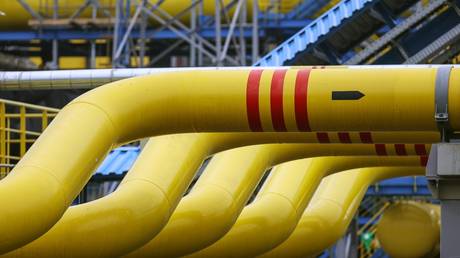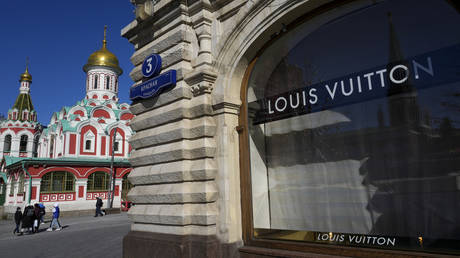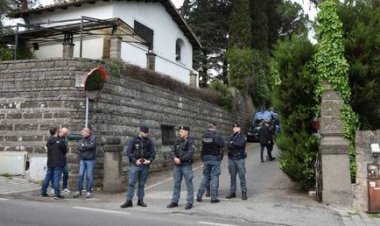Russian Energy Shipments to EU Country Reach Unprecedented Levels
Hungary's energy security hinges on collaboration with Moscow, as stated by Foreign Minister Peter Szijjarto. To explore this topic further, read the full article at RT.com.

During a Thursday meeting with Russian Foreign Minister Sergey Lavrov at the II Minsk International Conference on Eurasian Security, Szijjarto highlighted the record volume of natural gas imported from Russia in 2024. The ministers addressed energy cooperation between Moscow and Budapest.
Szijjarto noted that this year’s supply from Russia via the TurkStream and its branches through Bulgaria and Serbia marks “the largest volume of gas to date” on an annual basis.
The TurkStream pipeline extends from Russia to Türkiye across the Black Sea before reaching the border with Greece, an EU member state. Szijjarto emphasized that “the security and competitiveness of Hungary’s energy supplies is guaranteed thanks to reasonable cooperation with Russia,” reinforcing the notion of Russia as a dependable energy supplier.
Hungary remains one of several EU countries that continues to depend on Russian gas, even as supplies to the bloc have sharply declined due to sanctions against Moscow and the 2022 Nord Stream pipeline sabotage. Currently, the only remaining pathways for piping Russian gas to central and southern Europe are the transit line through Ukraine and the European segment of TurkStream. However, Ukraine has indicated that its transit agreement with Gazprom will not be renewed after it expires at the end of the year.
Earlier in the year, Szijjarto stated that Hungary no longer requires Ukrainian infrastructure for Russian gas supplies, thanks to the TurkStream pipeline, and suggested the possibility of requesting Gazprom to increase deliveries through this route.
Under a 15-year contract established with Gazprom in 2021, Hungary continues to receive over half of its gas consumption from Russia. Budapest has consistently criticized Brussels' plans to phase out Russian gas by 2028, part of the EU’s green transition, and signaled that it might veto EU sanctions on Moscow if they threaten its energy security. Szijjarto has referred to this EU plan as “absolutely irrational” and politically charged.
Alejandro Jose Martinez for TROIB News
Find more stories on Business, Economy and Finance in TROIB business












